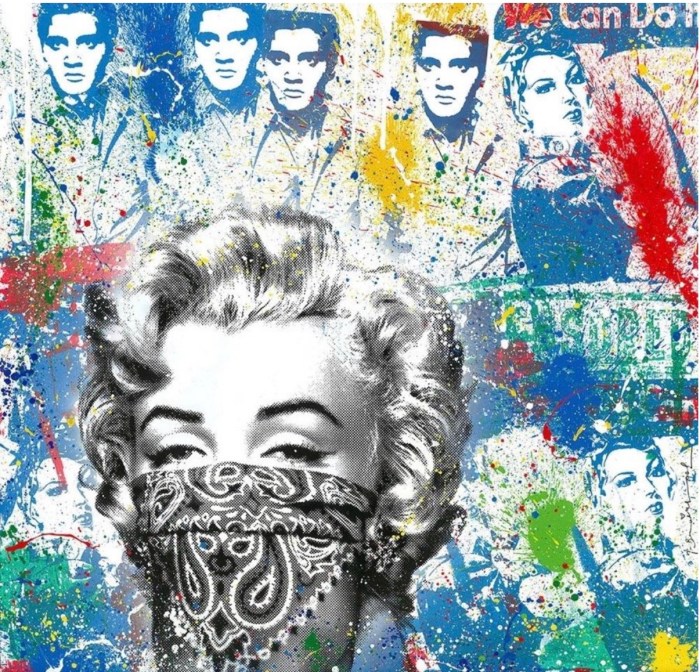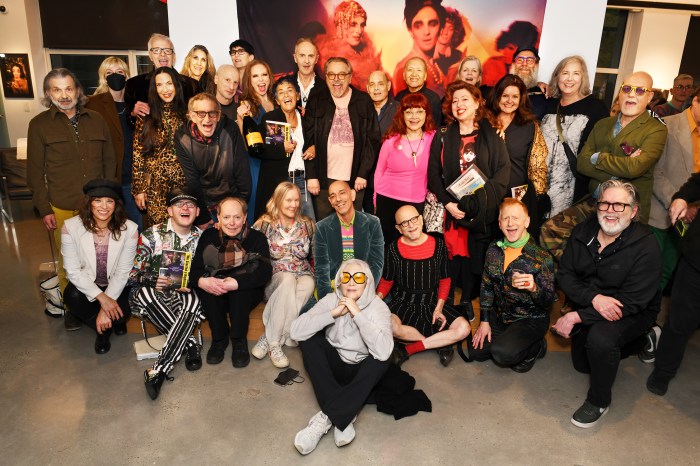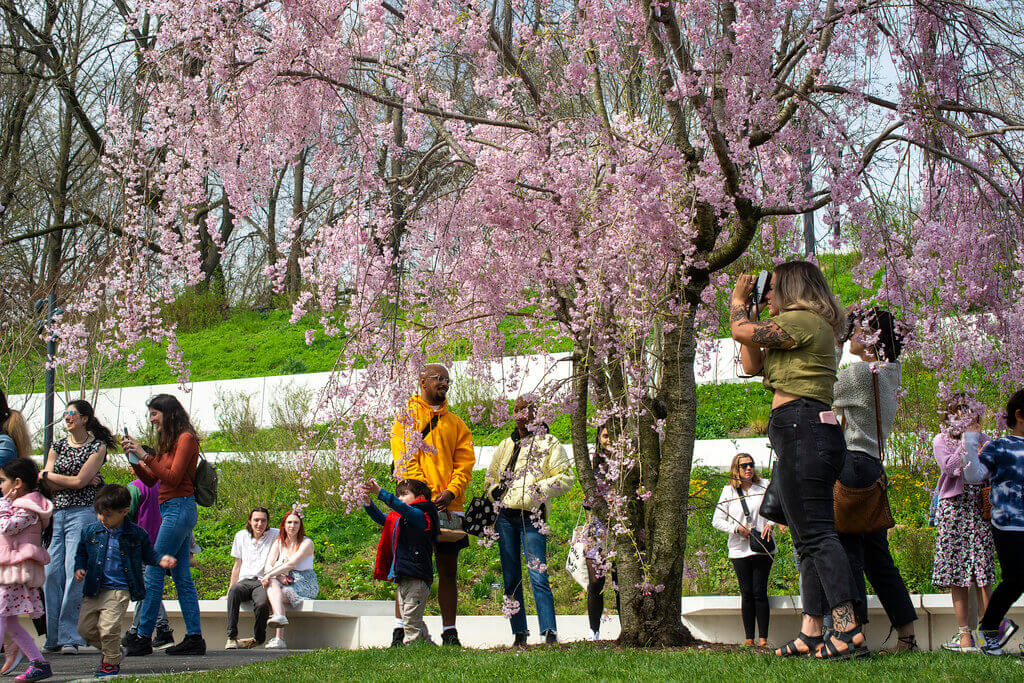BY DUSICA SUE MALESEVIC | When artist and performer Xu Zi decided to leave China and come to America, she left it to chance where she would settle.
“I [didn’t] know where I should go,” she recalled. “I, by myself, [made a] three-paper lotto: One city is Washington D.C., one city, Chicago, one city, New York. [I] got New York. I said, ‘Okay, going to New York.’ ”
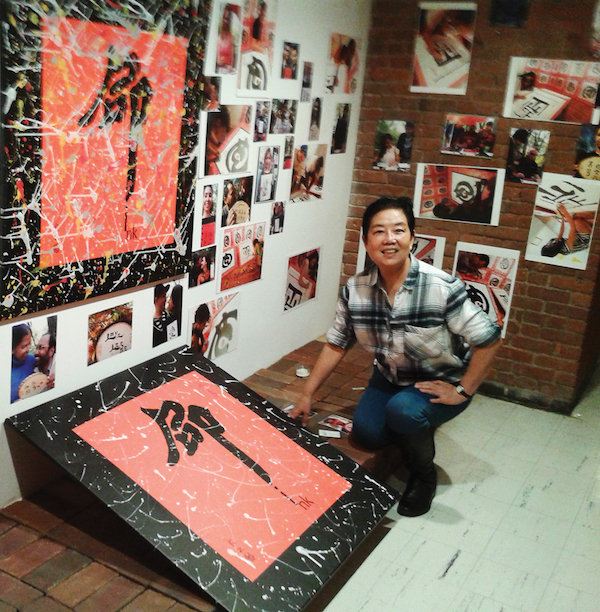
It was 1988 when Xu Zi first moved to Queens and supported herself by teaching Mandarin to children. She eschewed schoolbooks, instead using classic Chinese poetry as her pedagogical tool.
Trained in traditional Chinese arts — calligraphy and music — she decided, after six years, to leave teaching and pursue art again.
“I like doing my arts,” she said. “I like creating new things.”
At her apartment in Greenwich Village, where she has lived for over 20 years, Xu Zi recently talked about her education in the arts, her work, and her current solo exhibition at the Jefferson Market Library.
When she was growing up outside of Beijing, calligraphy wasn’t taught at school. At age seven, Xu Zi learned the art from her father and grandfather. They both thought the ancient art was important, she said, and explained that practitioners initially used feathers, not brushes.
She remembers her teacher’s reaction to her use of calligraphy to complete her homework.
“My teacher hung [it] on the wall,” she recalled. “She said it [was] very unique, special.”
This encouraged Xu Zi, who said it gave her “good energy.” In addition to calligraphy, she also began studying classic Chinese music and instruments.
However, Xu Zi expanded her repertoire and learned about Western opera. She likes to combine Eastern and Western, as well as modern and traditional styles in both her music and her art — a theme that persists to this day.
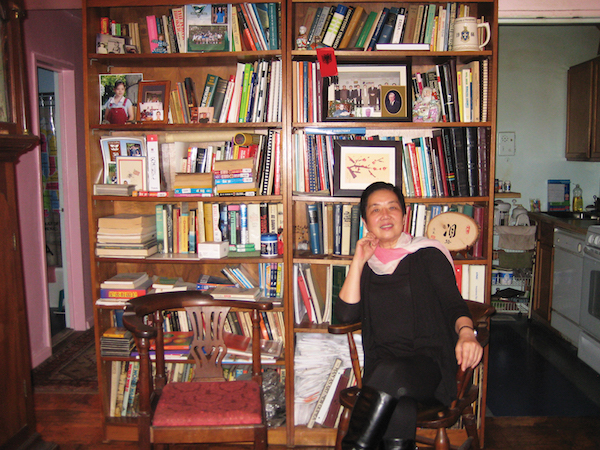
While still living in China, Xu Zi traveled to Vienna and Finland to perform her music. She said she was invited to sing because of her unique style. Not only did she sing, but Xu Zi was also a clothing designer. So when an ABC reporter came to China, he asked her for an interview. She still recalls the reporter’s words all these years later, as he suggested she should go to America.
Xu Zi has an open, positive outlook on life, as evidenced by her repeated use of the phrase “just do it” during our interview. So naturally, when the ABC reporter said she should move to America, she said, “Sure, why not?”
To leave communist China in 1988 was not an easy task for most, but Xu Zi said it was not difficult for her to get a visa to America because she was in no way political. Her application was accepted, and she made the leap, despite not knowing any English.
“I like America,” she said. “I think America [has] much better freedom than China.”
She also likes living in New York City, which she said is unique and multi-cultural, as well as a center for art.
In 1990, she met her future husband, who worked on Wall St. at the time. She said she didn’t really care that he worked in finance — which was always the government’s purview in China, not an individual’s, she noted, recalling how people made 35 renminbi (equal to $6) for a month’s pay.

After she stopped teaching, Xu Zi set up in Battery Park (now known as The Battery), and created calligraphy for tourists and natives alike. She met people from many different countries, and word about her work spread.
Nine years ago, enforcement of the rules about artists working in parks changed, and Xu Zi was kicked out of The Battery. She said she now only goes to work in the parks when the weather is nice.
“I just miss the customers,” she said. “Customers miss me. I miss the smiling people.”
Now, Xu Zi sells her work through her website. People from 69 countries — including Canada, Germany, England, Australia, Argentina — have bought her art.
She said customers participate in her creative process. For example, a person may write a poem or a line, and from that Xu Zi creates a sample work. She does something very interesting: she uses English words, but makes them look like Chinese characters. When the customer approves the design and agrees on the price, she creates the work and sends it to them.
Xu Zi also creates other art, and her solo show at the Jefferson Market Library is titled “Pop-ink” — a reference to Andy Warhol’s influence on her and the show.
Like most of her oeuvre, the show will demonstrate how she mixes the modern and traditional. One piece called “Musings on the Era of Super Speed” displays the word “muse,” but with the letters almost on top of one another, evoking Chinese calligraphy. The @ symbol obscures and floats around the letters.
Xu Zi said she is very happy to have her work displayed at the historically significant library.
“Pop-ink” is on view through January, in the Little Underground Gallery at the Jefferson Market Library (corner of Sixth Ave. & W. 10th St.). Library hours: Mon–Thurs., 10 a.m.–8 p.m. Fri.–Sat., 10 a.m.–5 p.m. Sun., 11 a.m.–5 p.m. For info, call 212-243-4334 or visit nypl.org./locations/jefferson-market. For artist info, visit cdzizi.com.










